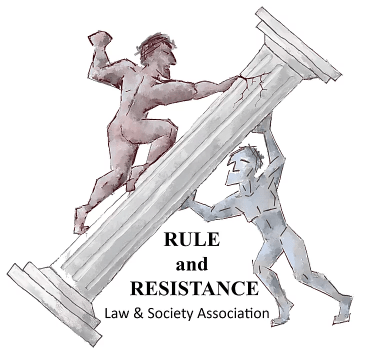Today we opened the Law and Society Association’s Annual Meeting, an annual highlight of my professional life. Had we not been sheltering in place, I’d be in Denver, learning from all my friends; fortunately, we haven’t had to cancel, and instead we are holding the entire meeting virtually. I’m very proud that my collaborative research network, CRN27–Punishment and Society, has a robust presence at the meeting–21 panels strong! I’ll be blogging about some of the panels here.
The opening panel this morning brought together scholars who conduct risky research in dangerous places. I was very impressed with all my colleagues on the panel–many of them new(er) to the field–who are doing amazing work under incredibly challenging circumstances. Their bravery, wholehearted commitment to the work, reflexivity about their role, and concern for their subjects, shone through all the talks. Here are a few takeaways from the panels:
Egor Lazarev (University of Toronto) opened by speaking about his research on the rule of law in Chechnya. I was struck by his straightforward assessment that things on the ground do not look as uniformly dangerous as they seem on TV, as well as by the way he used regular phone calls with his mother to keep her abreast of his research, fully aware of the fact that the conversation was probably eavesdropped on.
Viviane Weitzner (McGill University), who studies the movement against mining among indigenous communities in Colombia, inspired me by talking about how elders in the communities she studied offered her spiritual protection through protective rituals. I was especially moved by the fact that she included that, in a genuine way, in her account of how she kept safe.
Filiz Kahraman (University of Toronto) spoke of the challenges and dangers that she and her Turkish colleagues faced as a consequence of signing the Academics for Peace and Justice petition. She showed that the punitive consequences against them were arbitrary and stifling, and reminded all of us, when conducting international research, of the importance of partnering with local academics (and giving them credit.)
Hind Ahmed-Zaki (University of Connecticut), who has studied violence against women in Tunisia, spoke about the importance of being reflexive about our dual role as researchers and, often, as supporters and advocates for the movements we study. Among other things, her care and compassion for her subjects meant that she refrained from interviewing some people out of concerns about retraumatizing them.
Walid Salem (University of Washington) spoke of his arrest in Egypt and offered a lot of food for thought about how IRBs can protect scholars facing frightening consequences. He urged universities to be more thoughtful in how they frame permissions and protections for researchers, reminding us that, without institutional protection, a scholar could be stranded (or worse) in a hostile setting.
Kim Lane Scheppele (Princeton University) spoke of her open critique of the Orban regime in Hungary and the death threats she has received as a consequence. She pointed out that most countries do not keep a tally of death threats, and about needing to take them seriously; they are often treated as covered by freedom of speech even though they are not.
Beyond being incredibly grateful for the groundbreaking research these incredible colleagues conduct under such precarious conditions, I am grateful for the online platform. Who knows how many of our colleagues who face such adversities would be able to fly out and attend a physical conference?


